Filter by
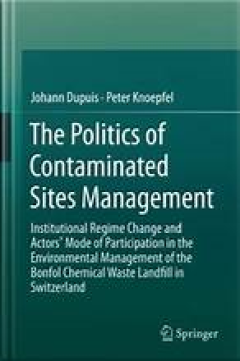
The Politics of Contaminated Sites Management
By the end of the 1970s, contaminated sites had emerged as one of the most complex and urgent environmental issues affecting industrialized countries. The authors show that small and prosperous Switzerland is no exception to the pervasive problem of sites contamination, the legacy of past practices in waste management having left some 38,000 contaminated sites throughout the country. This book …
- Edition
- 1
- ISBN/ISSN
- 978-3-319-11307-4
- Collation
- XIX, 159, 20 b/w illustrations, 8 illustrations in colour
- Series Title
- -
- Call Number
- -
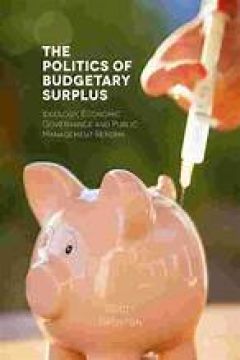
The Politics of Budgetary Surplus
This book probes the hollow rhetoric of debt, deficits and austerity. It explores the decisions of parties of the left which have attempted to deflect criticisms of economic mismanagement and gain trust by depoliticising the budget process and financial management with various rules, albeit with elements of discretion. The book argues that this is a perverse form of trust as it is premised on t…
- Edition
- 1
- ISBN/ISSN
- 978-1-137-58597-4
- Collation
- XV, 187
- Series Title
- -
- Call Number
- -
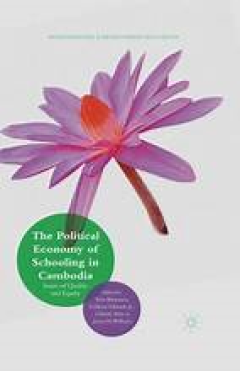
The Political Economy of Schooling in Cambodia
In the most in-depth look at education in Cambodia to date, scholars long engaged in research on Cambodia provide historical context and unpack key issues of high relevance to Cambodia and other developing countries as they expand and modernize their education systems and grapple with challenges to providing a quality and equitable education.
- Edition
- 1
- ISBN/ISSN
- 978-1-137-45600-7
- Collation
- XII, 245
- Series Title
- International and Development Education
- Call Number
- -
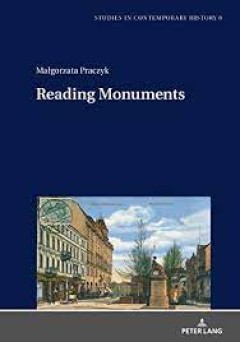
Reading Monuments A Comparative Study of Monuments in Poznań and Strasbourg…
This book tells the story of monuments in two cities that share a parallel and turbulent history: Strasbourg and Poznan. With the Franco-Prussian War begins the well-known story of the destruction and erection of memorials. This book not only explains the mechanisms related to how memorials have functioned in the past, but also contributes to our understanding of current modes of their percepti…
- Edition
- -
- ISBN/ISSN
- 9783653071481
- Collation
- -
- Series Title
- -
- Call Number
- -
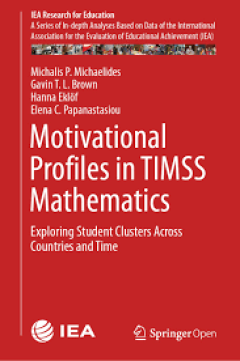
Motivational Profiles in TIMSS Mathematics Exploring Student Clusters Across…
This open access book presents a person-centered exploration of student profiles, using variables related to motivation to do school mathematics derived from the IEA’s Trends in International Mathematics and Science Study (TIMSS) data. Statistical cluster analysis is used to identify groups of students with similar motivational profiles, across grades and over time, for multiple participating…
- Edition
- -
- ISBN/ISSN
- -
- Collation
- -
- Series Title
- -
- Call Number
- -

Asbestos – The Last Modernist Object
Few modern materials have been as central to histories of environmental toxicity, medical ignorance, and legal liability as asbestos. A naturally occurring mineral fibre once hailed for its ability to guard against fire, asbestos is now best known for the horrific illnesses it causes. This book offers a new take on the established history of asbestos from a literary critical perspective, showin…
- Edition
- -
- ISBN/ISSN
- 9781474482448
- Collation
- -
- Series Title
- -
- Call Number
- -
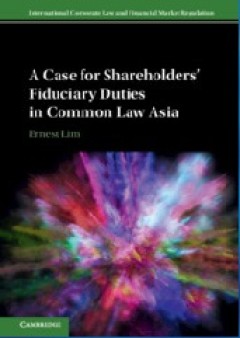
A Case for Shareholders' Fiduciary Duties in Common Law Asia
This book reconceptualises the role of the general meeting and shareholders in the listed companies in four leading common law jurisdictions in Asia (Singapore, Hong Kong, India and Malaysia) as one that should include fiduciary duties. It demonstrates why, when, by whom and how fiduciary duties should be imposed and how they could be enforced. In so doing, it refutes the long-standing common l…
- Edition
- -
- ISBN/ISSN
- 9781108629065
- Collation
- -
- Series Title
- -
- Call Number
- -
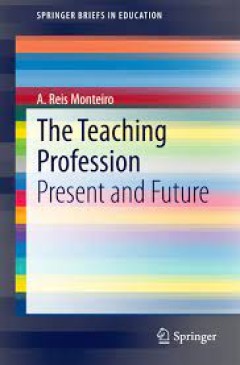
The Teaching Profession Present and Future
This volume contributes to debates about the teaching profession by reviewing international and national reports on its status, as well as on reforms of various education systems. It proposes a global approach to the quality of the teaching profession as a decisive ingredient of education quality, including a conception of its identity and a vision of its future. Moreover, it is suggested that …
- Edition
- -
- ISBN/ISSN
- 978-3-319-12130-7
- Collation
- -
- Series Title
- -
- Call Number
- -

The Sub-national Dimension of the EU A Legal Study of Multilevel Governance
This book is the first monograph-form legal study on multilevel governance in the EU and represents a radical change in the approach to this topic. Particularly after the Treaty of Lisbon’s entry into force, research on multilevel governance can no longer remain confined to the analysis of political dynamics or of soft law arrangements. Multilevel governance emerges as a constitutional princi…
- Edition
- -
- ISBN/ISSN
- 978-3-319-14589-1
- Collation
- -
- Series Title
- -
- Call Number
- -

The State as an Actor in Religion Policy Policy Cycle and Governance Perspec…
Maria Grazia Martino and her contributing authors highlight the different solutions found by European countries with different ecclesiastical law systems, different distributions of Christian denominations and different percentages of Muslim immigrants: Germany, Switzerland, France, Sweden, Italy and Greece. Churches and religious communities are actors from civil society. The state sets the fr…
- Edition
- -
- ISBN/ISSN
- 978-3-658-06945-2
- Collation
- -
- Series Title
- -
- Call Number
- -
 Computer Science, Information & General Works
Computer Science, Information & General Works  Philosophy & Psychology
Philosophy & Psychology  Religion
Religion  Social Sciences
Social Sciences  Language
Language  Pure Science
Pure Science  Applied Sciences
Applied Sciences  Art & Recreation
Art & Recreation  Literature
Literature  History & Geography
History & Geography